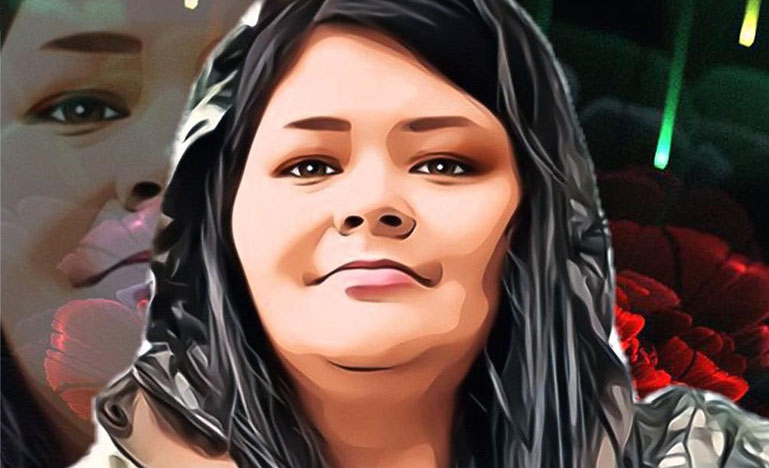Still no justice for Joyce Echaquan
Where’s the urgency in reforming the health care system and adopting Joyce's Principle?

The story of Joyce Echaquan, an Atikamekw woman who died on September 28 after broadcasting a Facebook video of hospital staff making racist comments about her, has made the news around the world.
In this video, the acute pain Joyce Echaquan is experiencing is obvious. She is strapped to a stretcher as her desperate cries for help are met with explicit racism and blatant contempt. Among the shameless insults hurled by the staff members present were comments about how she “was only good for sex,” was “stupid as hell,” and was “better off dead.” One staff could be heard saying, “You’ve made bad choices, my dear. What would your children think, to see you like this?”
Although uttered by the staff members responsible for Joyce Echaquan’s care, these insults also represent the voice of a system where racism is pervasive. These insults speak to the systemic racism that exists within the health care system and reveal a particular set of prejudices against Indigenous patients. Numerous studies have documented the inequities in government services for Indigenous peoples and the discrimination faced by members of these communities when trying to access health care systems in particular. According to a report released in 2020, the following stereotypes have been reported as prevalent: that Indigenous patients suffer from addiction, are poor parents, abuse the health care system and do not comply with health care staff instructions.
The consequences of these stereotypes are significant, as Indigenous patients receiving lower quality of care can have serious repercussions such as death or the removal of a child. In particular, Indigenous patients are more likely to be subject to racist comments or harsh treatment by staff. They wait longer for care or are denied it. They tend not to be believed when they express symptoms or pain, and then receive insufficient pain medication. They are subject to medical errors or misdiagnosis or delayed diagnosis, and they are deprived of their cultural protocols.
Sadly, what happened to Joyce Echaquan was by no means a singular instance. It is no exaggeration to say that the consequences of this widespread discrimination can be fatal. Within Joyce Echaquan's community of Manawan, the lack of emergency ambulatory services has already caused the death of at least two people.
Joyce’s Principle
On October 3, 2020, Premier Legault called for a further investigation. The chiefs of Manawan, Wemotaci and Opitciwan requested that an Atikamekw observer be allowed to follow this investigation. The request was not answered. At present, the investigation is still ongoing.
Premier Legault's continued refusal to acknowledge the existence of systemic racism in Quebec represents a more generalized refusal of political actors to address the profound issues that continue to oppress Indigenous peoples. In a landmark human rights complaint regarding the underfunding of services for First Nations children, the Canadian Human Rights Tribunal (CHRT) found that it is illegal for the Government of Canada to fail to take action to remedy discrimination when it becomes aware of it. The CHRT's decision is clear: Governments that fail to act can and will be held accountable for the harms caused by ongoing and systemic discrimination. If the moral imperative is insufficient to make Legault stop ignoring the fatal consequences of his government's inaction, he risks a similar fate before the courts.
The Atikamekw Nation has also submitted “Joyce’s Principle” to the federal and provincial governments, which aims to guarantee the right to equitable access to all health and social services without any discrimination for all Indigenous peoples. The Legault government has also ignored these concrete recommendations.
More urgent than ever
The COVID-19 pandemic further exacerbates the risks presented by discrimination in the health care system. Indeed, "[h]istoric and contemporary forms of colonialism predispose First Nations peoples to a higher risk for COVID-19.” Members of First Nations communities are also more likely to develop complications from COVID-19 due to the prevalence of chronic diseases such as diabetes or asthma in their communities. This predisposition to contracting COVID-19 is further compounded by reduced access to health care, the insecurity of clean water for hand washing in many communities, and significant underfunding from the federal government for Indigenous peoples’ pandemic response.
The reform of the health care system and the adoption of Joyce's Principle is therefore more urgent than ever. If substantive equality is not seen as an immediate policy objective in government programs and services, Canada's colonialist policies will once again have predictable and fatal consequences for First Nations peoples.


